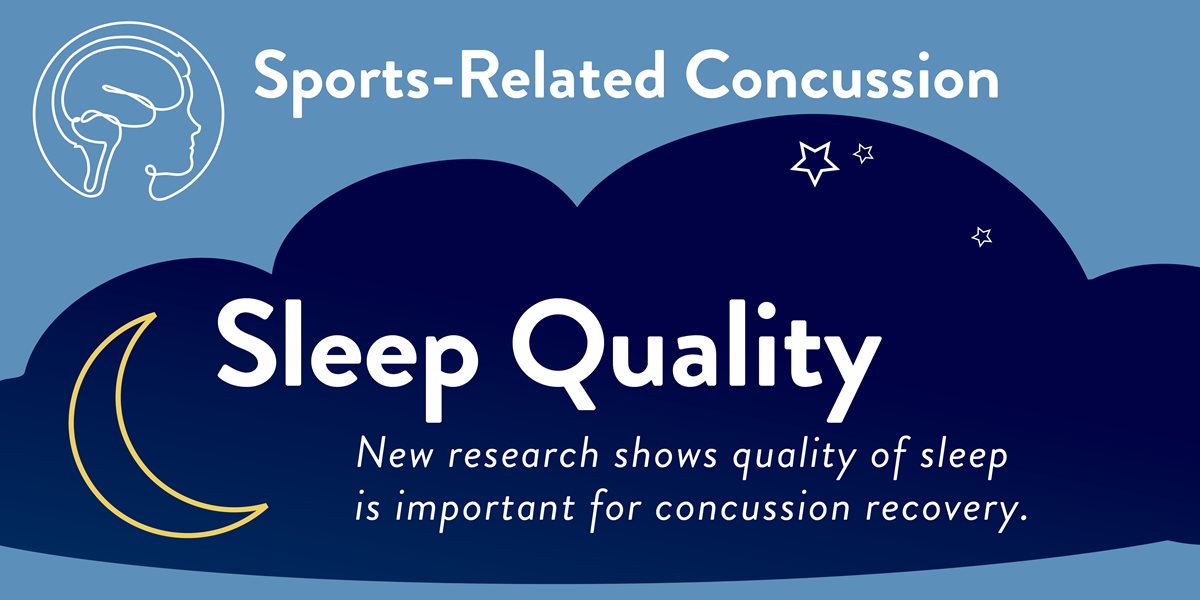
Nov 02, 2018 / Sports Medicine
How Does Sleep Quality Affect Recovery After a Sports Concussion?
Read the published article.
Scottish Rite for Children sports medicine physician, Jane S. Chung, M.D., will present her research abstract on “Association Between Sleep Quality and Recovery Following a Sport-Related Concussion in the Pediatric Population” during the 2018 American Academy of Pediatrics (AAP) National Conference & Exhibition.
Dr. Chung was selected by her sports medicine peers to present her study during the Council on Sports Medicine and Fitness (COSMF) session. Her presentation was chosen to be a highlight for the media, due to the important message and key findings. This is an honor that is only given to a select few abstracts.
Throughout her medical training and experiences, Dr. Chung has noted the health benefits good sleep provides, compared to the negative impact one suffers, as a result of poor sleep. She wondered if the positive effects of increased mental acuity, focus and concentration, as well as the overall well-being associated with positive sleep habits, would have any influence in the recovery of an athlete following a sports-related concussion.
Being an avid surfer herself, Dr. Chung knew how much her own sleep quality contributed to having peak mental alertness while in the unpredictable open waters. When Dr. Chung applied this knowledge in the clinical setting, she noticed that her patients who suffered lasting symptoms after a concussion also frequently complained of suffering from poor sleep. To determine if a correlation was actually present, she conducted a study analyzing data in these patients.
Dr. Chung’s study looked at data from 356 athletes, age 19 and younger, who were diagnosed with a sport-related concussion, between October 2015 and June 2017. Of those athletes, 261 were classified as experiencing good sleep quality while 95 athletes reported poor sleep quality. Sleep quality was determined by a questionnaire, which was scored based on the athlete’s responses. Athletes with poor sleep quality reported the following:
Better sleep quality could mean a faster recovery from concussions. Scottish Rite Hospital hopes that this study encourages clinicians to discuss post-concussion sleep quality and use this information to help identify athletes who may be at risk for a longer recovery period, as well as to advocate for good sleep quality.
Additional resources: Learn more about concussion recovery, sleep quality for young athletes and our Center for Excellence in Sports Medicine.
Scottish Rite for Children sports medicine physician, Jane S. Chung, M.D., will present her research abstract on “Association Between Sleep Quality and Recovery Following a Sport-Related Concussion in the Pediatric Population” during the 2018 American Academy of Pediatrics (AAP) National Conference & Exhibition.
Dr. Chung was selected by her sports medicine peers to present her study during the Council on Sports Medicine and Fitness (COSMF) session. Her presentation was chosen to be a highlight for the media, due to the important message and key findings. This is an honor that is only given to a select few abstracts.
Throughout her medical training and experiences, Dr. Chung has noted the health benefits good sleep provides, compared to the negative impact one suffers, as a result of poor sleep. She wondered if the positive effects of increased mental acuity, focus and concentration, as well as the overall well-being associated with positive sleep habits, would have any influence in the recovery of an athlete following a sports-related concussion.
Being an avid surfer herself, Dr. Chung knew how much her own sleep quality contributed to having peak mental alertness while in the unpredictable open waters. When Dr. Chung applied this knowledge in the clinical setting, she noticed that her patients who suffered lasting symptoms after a concussion also frequently complained of suffering from poor sleep. To determine if a correlation was actually present, she conducted a study analyzing data in these patients.
Dr. Chung’s study looked at data from 356 athletes, age 19 and younger, who were diagnosed with a sport-related concussion, between October 2015 and June 2017. Of those athletes, 261 were classified as experiencing good sleep quality while 95 athletes reported poor sleep quality. Sleep quality was determined by a questionnaire, which was scored based on the athlete’s responses. Athletes with poor sleep quality reported the following:
- Sleeping fewer than 7 hours per night
- Waking up frequently
- Inability to fall asleep within 30 minutes
- Needing medication to sleep
- Unable to stay awake during the day
- Two times worse symptoms at their initial clinic visit
- Three times worse symptoms at 3-month follow-up visit
- Symptoms lasted longer than one month
Better sleep quality could mean a faster recovery from concussions. Scottish Rite Hospital hopes that this study encourages clinicians to discuss post-concussion sleep quality and use this information to help identify athletes who may be at risk for a longer recovery period, as well as to advocate for good sleep quality.
Additional resources: Learn more about concussion recovery, sleep quality for young athletes and our Center for Excellence in Sports Medicine.



